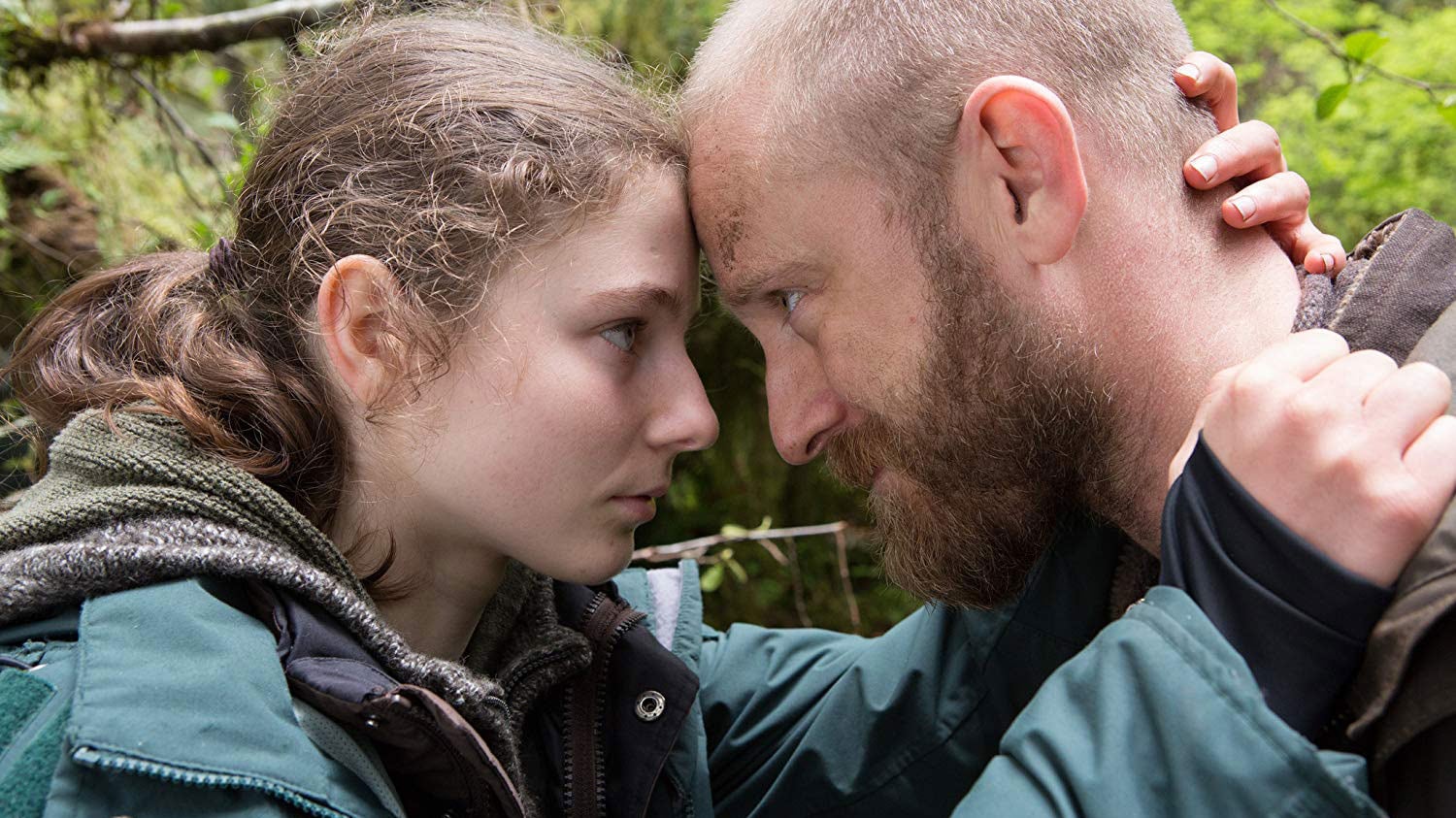Fifteen years ago, reports that an unemployed veteran had lived with his 12-year-old daughter for years inside the heart of Forest Park made for global clickbait. But the incident holds a special resonance for a city whose every resident has idly dreamed of following in those imperceptible footsteps.
Leave No Trace, director Debra Granik's adaptation of the 2007 novel My Abandonment, digs deep into the lingering questions raised by the pair's sudden disappearance. But locals wondering about the fate of Tom (Thomasin McKenzie) and her troubled dad, Will (Ben Foster), shouldn't anticipate any easy answers. Leave No Trace is a dreamy, nuanced reverie that's dismissive of plot and shy on local color.
Our campers are introduced within the ginormous West Hills preserve—here played by Clackamas County's Eagle Fern Park. There's no indication of the forest's size or scope, and the only hint of urban proximity comes from an errant jogger one luckless morning and the subsequent ATV-mounted patrol.
That roust comes surprisingly early in the film and marks Granik's last nod to conventional narrative. The pace slows, predictability heightens, and all discernible conflict disappears.
Still, focusing on plot alone would be a disservice to a film whose interests lie elsewhere. Granik stresses the aesthetics of the incident, but after leveraging the highest of concepts for 90 minutes, things do happen. After the police raid and destruction of their homestead, the pair are dragged off to social services for an exhaustive series of interviews and examinations that prove Will is sane and Tom is a model student. After four years of off-campus independent study, she's actually outperforming her Gresham School District age group in all subjects.
Somewhat miraculously, this isn't a sad film. It's starved for momentum and dramatic hooks, but is never dull. Absent usual diversions, the audience can turn its gaze to whatever visuals catch the eye. As a result, small moments of casual intimacy own the stage like close-in magic. Despite Leave No Trace's humorless treatment and tragedy of its issues, McKenzie's incandescent ebullience blazes.
If families on anarcho-tourist adventures can be considered its own genre, norm-trending daughters never supplant their crackpot-visionary dads. Still, that shifted emphasis does not reflect a disparity of talent. PTSD-scarred survivalist falls safely within Foster's wheelhouse, and he holds the conch in the movie's early scenes. Though Leave No Trace introduces us to Will with a bout of night terrors, we're increasingly assured those demons will remain under wraps. Foster makes the most of a limited palette—the differing trajectories of father and daughter, and slowly strained familial bonds. He's a soulful glower, while McKenzie glows.
Peter Rock, the Reed College professor who wrote the novel Leave No Trace is based on, was initially drawn to the story of a bright tween girl hiding in plain sight by imagining what sort of narrative voice she would naturally develop. That sort of interiority isn't easily replicated (or especially demanded) by movies. So Granik simply aimed the spotlight at a transcendent talent.
Leave No Trace acknowledges Tom is an exception. She's perfectly attuned to her extended outdoor school, the sort of self-taught prodigy capable of wringing multitudes from her father's stone-faced melancholia. But there's still something troubling about the giddily unburdened eagerness with which our young heroine re-enters civilization. At best, we're implicitly ignoring the socioeconomic inequities that forced her father's desperate circumstances.
Still, Granik's previous movie, Winter Bone, launched Jennifer Lawrence's career from a film about backwoods meth labs. If McKenzie's career follows the same arc, expect a generation of tweeners hoarding second-hand encyclopedias in hopes of spending middle school in the woods.
SEE IT: Leave No Trace opens Friday, June 29, at Cinema 21, 616 NW 21st Ave., cinema21.com. Showtimes vary. $8-$10. A screening with Debra Granik in attendance will be held at 7 pm Thursday, June 28. $10.

